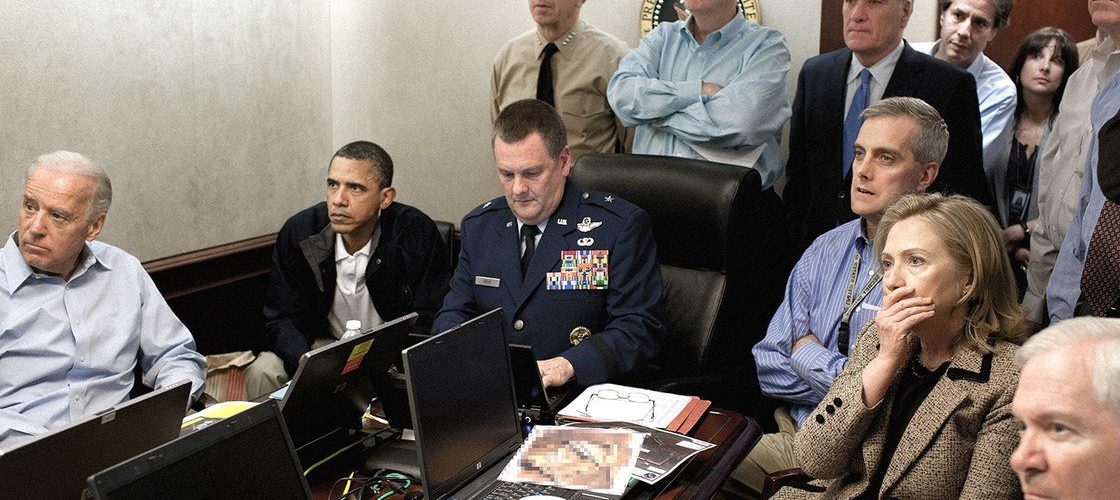“Since 2002, Pakistan has received around $13 billion for its support of the US-led war in Afghanistan, in addition to billions more in humanitarian aid…”
Dr. Shakil Afridi, who was instrumental in the mission to find Osama bin Laden, was arrested after US forces killed bin Laden in May 2011 in a secret raid in northern Pakistan.
Pakistan accused the doctor of running a fake vaccination campaign in which he collected DNA samples to help the Central Intelligence Agency (CIA) confirm bin Laden’s identity and location.
The doctor was arrested and charged with having ties to militant Islamists, which he denied shortly after the bin Laden operation. In 2012, Afridi was sentenced to 33 years in prison after being convicted of being a member of militant group Lashkar-e-Islam, but the conviction was overturned in 2013. Dr. Afridi was then charged with murder relating to the death of a patient eight years earlier. He remains in jail awaiting trial.
Pakistani officials describe bin Laden’s long presence in Abbottabad as a mere security hiccup and reject any suggestion that members of the military or intelligence services were involved in hiding him within the country at the expansive compound, just minutes from the Pakistani military academy.
US officials often describe Islamabad as an unreliable partner that has sheltered the Afghan Taliban leadership.
For five years, the Obama administration had not done anything to help. Rep. Dana Rohrabacher (R-CA) routinely called on the Obama administration to withhold billions in aid to Pakistan until Afridi was released. Last year, the House of Representatives passed a defense budget that would make $900 million in assistance contingent on the nation doing more to stop a militant terror network and called on the country to free the jailed doctor. But so far, all efforts have proven unsuccessful.
“Our government for the last five years has permitted this to go on; the fact that they [Pakistan] have been able to collect any military or non-military aid is a travesty and is a comment on our weakness as Americans,” Rohrabacher said.
Now, under the Trump administration, we see some movement. Negotiations for the release of a doctor who helped the CIA pinpoint the location of Osama bin Laden are taking a front row seat, with the physician potentially facing release as early as May.
Intelligence sources have reported that extensive “backroom dealing” between Pakistan’s Inter-Services Intelligence and the Pakistani Army regarding Afridi’s release—particularly due to his declining health—are ongoing. Insiders connected to the intelligence community say that the Pakistani Army wants to let Afridi go but also wants to “save face” on a national and international scale.
If Afridi is released, he and his family will not be safe in Pakistan. Most of his immediate family remains in hiding, and his former lawyer was murdered by the Taliban in 2015.
“I assume he and his extended family will live and come here,” the Pentagon source added. “But it could also be a third country to save Pakistan from embarrassment.
Even before President Trump was elected, he had signaled he would get the doctor freed. There is a rather significant amount of pressure he can bring to that effort. Since 2002, Pakistan has received around $13 billion for its support of the US-led war in Afghanistan, in addition to billions more in humanitarian aid. The actual reduction in assistance to Pakistan or the threat of reduction of aid and assistance unless Doctor Afridi is released would be a very powerful incentive.
This is a tactic the US Congress has attempted before. With the House, Senate, and presidency all under Republican control, the use of the “power of the purse strings” is a real possibility.
Supna Zaidi, founder and executive director of the Council for Democracy and Tolerance, stressed that the US could not forget Afridi and pointed out the broader implications his release would have on foreign policy. “By securing Afridi’s release,” she said, “future cooperation from the international community is more likely because the US will have maintained a reputation of not abandoning men and women, like Afridi, once a security issue is resolved.”
President Trump has already shown his resolve not to leave those who help the US languishing and forgotten with his successful negotiations for CIA case officer Sabrina De Sousa, also abandoned by President Obama.
Jon Harris is an OpsLens contributor and former Army NCO, civilian law enforcement officer, and defense contractor with over 30 years in the law enforcement community. He holds a B.S. in Government and Politics and an M.S. in Criminal Justice.
To contact or book OpsLens contributors on your program or utilize our staff for your story, contact [email protected].

















